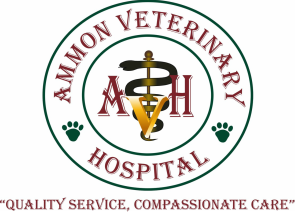Canine Influenza
According to the AVMA, Canine influenza (CI, or dog flu) in the U.S. is caused by the canine influenza virus (CIV), an influenza A virus. It is highly contagious and easily spread from infected dogs to other dogs through direct contact, nasal secretions (through barking, coughing or sneezing), contaminated objects (kennel surfaces, food and water bowls, collars and leashes), and by people moving between infected and uninfected dogs. Dogs of any breed, age, sex or health status are at risk of infection when exposed to the virus.
Unlike seasonal flu in people, canine influenza can occur year round. So far, there is no evidence that canine influenza infects people. However, it does appear that at least some strains of the disease can infect cats.
Canine influenza symptoms and diagnosis
CIV infection resembles canine infectious tracheobronchitis ("kennel cough"). The illness may be mild or severe, and infected dogs develop a persistent cough and may develop a thick nasal discharge and fever (often 104-105oF). Other signs can include lethargy, eye discharge, and reduced appetite. Some dogs may not show signs of illness, but can shed the virus and infect other dogs.
Most dogs recover within 2-3 weeks. However, secondary bacterial infections can develop, and may cause more severe illness and pneumonia. Anyone with concerns about their pet’s health, or whose pet is showing signs of canine influenza, should contact their veterinarian.
Click here for more information on caring for your pet with Canine Influenza
Unlike seasonal flu in people, canine influenza can occur year round. So far, there is no evidence that canine influenza infects people. However, it does appear that at least some strains of the disease can infect cats.
Canine influenza symptoms and diagnosis
CIV infection resembles canine infectious tracheobronchitis ("kennel cough"). The illness may be mild or severe, and infected dogs develop a persistent cough and may develop a thick nasal discharge and fever (often 104-105oF). Other signs can include lethargy, eye discharge, and reduced appetite. Some dogs may not show signs of illness, but can shed the virus and infect other dogs.
Most dogs recover within 2-3 weeks. However, secondary bacterial infections can develop, and may cause more severe illness and pneumonia. Anyone with concerns about their pet’s health, or whose pet is showing signs of canine influenza, should contact their veterinarian.
Click here for more information on caring for your pet with Canine Influenza
